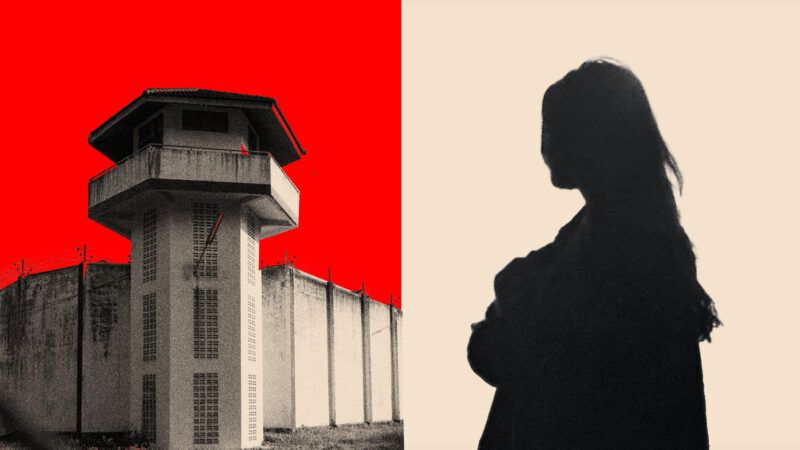'Night of Terror': Lawsuit Alleges Female Inmates Were Sexually Assaulted for Hours in Indiana Jail
The lawsuit claims that a correctional officer gave male inmates the key to women's housing after accepting a $1,000 bribe.

A civil rights lawsuit was filed Monday on behalf of eight women who allege that they were subjected to hours of abuse by male inmates while incarcerated in an Indiana jail.
On October 24, 2021, the suit says, Clark County Jail officer David Lowe gave two male inmates the keys to the female housing areas of the jail. Lowe had allegedly accepted a $1,000 bribe from the men. A group of male inmates then allegedly proceeded to rape, assault, harass, and threaten female inmates for several hours, in what the lawsuit calls a "night of terror." No jail officers came to the women's aid during this time.
According to the suit, when a group of women complained about their treatment, jail officers retaliated by revoking the women's "dark" privileges—that is, by keeping the lights on for 72 hours. The officers also confiscated the female inmates' personal items including pillows, blankets, and hygiene products.
Lowe currently faces criminal charges of trafficking, aiding escape, and official misconduct.
This is the second lawsuit filed in connection to this incident. An earlier suit, filed in June on behalf of 20 women, alleges similar civil rights violations. Both suits say that officers failed to help the women even though their assaults were easily visible on security cameras.
The plaintiffs face an uphill battle. Even if the accusations are true, the doctrine of qualified immunity may protect the correctional officers. Their alleged actions may seem obviously to violate the women's constitutional rights, but qualified immunity has protected police officers and prison guards from similarly horrible charges in the past simply because no existing case law prohibited their precise actions.
"Welcome to the bizarro world of qualified immunity, a place where the federal courts will acknowledge that a police officer violated the Constitution but then deem the officer not civilly liable for his unconstitutional actions because there was no prior court decision explicitly frowning on the same behavior," wrote Reason's Damon Root in 2020. "Something has gone seriously wrong in our criminal justice system when the federal courts are running this kind of interference on behalf of blatantly unconstitutional police actions."
Even if the plaintiffs overcome qualified immunity, they will face another barrier to actually receiving damages from the Clark County government. Following the Supreme Court's 1978 ruling in Monell v. Department of Social Services of the City of New York, cities and local governments can only be held liable for the actions of their employees when their employees are acting under official policy. To "hold a city responsible, a victim must prove the misconduct was so regular as to become a de facto city policy," Orin De Nevers wrote in a 2020. "This bar is impossible to clear in most cases; where the burden can be met, the damage will already have been done."
There was no official city policy to violate inmates' civil rights in this way—though the June lawsuit claims that one defendant, Sheriff Jamie Noel, was acting on a de facto policy of failing to properly train officers. Nonetheless, it is unlikely that the plaintiffs in this case will be able to collect damages from Clark County.
In cases like these, the deck is stacked against plaintiffs, even when they can prove that their rights were violated. A series of bad legal precedents protect officials from being held fully accountable for their abuses of power, no matter how egregious their actions.


Show Comments (67)